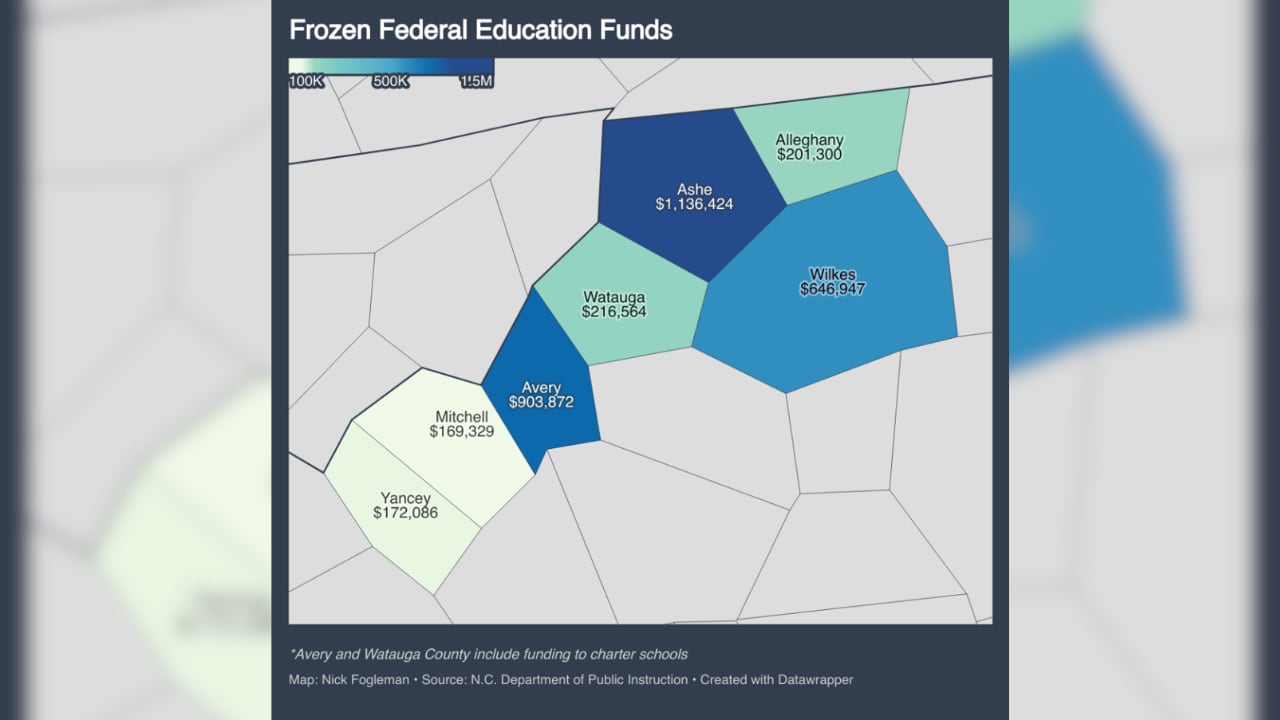Federal Education Funding Freeze Affects Watauga County
More than $216,000 in federal education funding for Watauga County has been put on hold. The Department of Education is currently reviewing federal grant programs that support schools across North Carolina. This decision has raised concerns among local officials and educators who rely on these funds to maintain essential programs and services.
The county’s superintendent explained that the frozen funding would have been used to support various educational initiatives. These include hiring and retaining teachers, employing support staff, organizing professional development workshops, and purchasing necessary supplies for students and classrooms. Without this financial support, the school system may face challenges in maintaining its current level of service and academic quality.
Despite the importance of these funds, there is no clear timeline for when the Department of Education will finalize its review. This uncertainty has left many educators and administrators in a difficult position, as they must plan for the upcoming school year without knowing whether critical resources will be available.
This situation is not isolated to Watauga County. It is part of a larger trend where billions of dollars in federal education funding have been paused nationwide. The freeze affects numerous school districts across the country, creating widespread uncertainty about how schools will manage their budgets and meet the needs of their students.
Impact on Educational Programs
The suspension of federal funding has far-reaching implications. For instance, programs that provide additional support to students with special needs, English language learners, and those from low-income families are particularly vulnerable. These programs often depend on federal grants to operate effectively. If the funding remains frozen, schools may have to cut back on services or find alternative sources of funding, which could be challenging.
In addition to direct funding, the freeze also affects other aspects of the educational system. For example, it could lead to reduced access to technology, fewer extracurricular activities, and limited opportunities for professional development for teachers. All of these factors can impact the overall quality of education and student outcomes.
Broader Implications
The broader implications of the funding freeze extend beyond individual school districts. It highlights the vulnerability of the education system to changes in federal policy and budget decisions. As schools navigate these challenges, they may need to seek alternative funding sources, such as local government support, private donations, or partnerships with community organizations.
Educators and administrators are also calling for increased transparency and communication from the Department of Education. They emphasize the need for clear guidelines and timelines to help schools plan more effectively. Without this information, it is difficult to make informed decisions about resource allocation and program development.
Looking Ahead
As the situation unfolds, the focus remains on finding solutions to ensure that all students have access to a high-quality education. Local leaders, educators, and community members are working together to explore options and advocate for the necessary resources. The hope is that the funding freeze will be resolved soon, allowing schools to continue supporting their students and communities.







